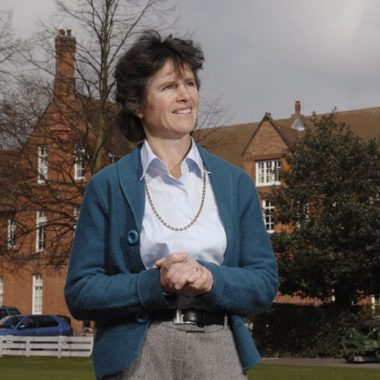GPs must start saying ‘no’ to extra work

‘Does general practice have boundaries?’ I asked myself as I headed off to visit a 90-year-old woman at 11pm on an out-of-hours shift.
We had been asked to treat a housebound patient who had faecal impaction and severe pain.
Apparently paramedics had been, spent an hour or two, assessed and concluded there was nothing they could do. The district nurse team decided it was not their role (although surely this is typical work for a district nurse) so the verdict was that there would have to be a GP visit. My response was to turn this into an adventure for the trainee and student and I asked them to accompany me.
‘Hello, nurse,’ the patient’s husband greeted me, before telling us how long his wife had waited, how many health workers had visited, and how cross he was with us.
For the procedure, I pulled on two pairs of Marigold gloves and deployed liberal quantities of KY jelly. After a heady five minutes of junior doctor-style ‘getting on with it’, my mission was accomplished. It gave me some pleasure to record in the patient’s notes: ‘Faeces evacuated manually and heroically.’
The next day, I wondered when manual evacuation had ever been on my list of teamwork jobs as a GP. Perhaps my response to the request from the patient with faecal impaction should have been, ‘this is not my remit’. But this is still an uncomfortable line to take. Most GPs are still trying to retain the qualities of Mother Teresa while adopting those of Lord Sugar. But being saintly and ruthless is increasingly difficult in the current climate.
Every day, I hear non-GP colleagues say they can’t take an INR because the patient is not on their caseload, they haven’t been signed up to do flu jabs, that a job’s not part of their remit or they have stopped providing the service a patient needs.
Unfortunately, the reality is that all those shunned activities end up in GPs’ caseloads. And ‘work dump’ is getting worse all the time.
Multi-disciplinary support for GPs from paramedics, pharmacists, nurses and therapists is theoretically a way to rescue us from the unsustainable current model. But it can only work if each member of the team takes their share of demand, rather than passing cases back to us. Everyone’s workload has gone up and GPs can no longer pick up the slack.
Exploited
For example, GP appointments are often exploited when patients have been told to ask for letters declaring them ‘fit to use gym equipment’ or ‘unfit to take exams’. I spend two to three hours a week on unnecessary paperwork like this. Even if I charge a patient the standard non-NHS fee for this, I resent the fact that they have kept me from treating someone who is actually ill.
So we need to demand support from the rest of the NHS. Teamwork must be the way forward, whether this involves paramedics and nurse practitioners running rapid-access clinics for urgent cases, or innovative schemes such as Medihome, which provides regular post-discharge visits to elderly patients.
I’d advise GPs to adopt three rules for refusing work. First, don’t accept something as your job just because no one else will do it. Second, don’t be reticent about explaining to patients that the NHS can’t cover everything. Finally, and most importantly, resist extra jobs unless funding comes with them.
GPC and RCGP leaders have begun campaigns calling for better support for GPs – and we must hope patient groups and the Government will listen.
But without boundaries indicating which tasks belong to which roles in primary care, GPs will continue to be overwhelmed. Rising demand is crippling our profession, but if colleagues refuse to share the load we don’t stand a chance.
The next time I am asked to deal with faecal impaction, I will tell them exactly where to stick it.
Dr Fiona Cornish is a GP in Cambridge and former chair of the Medical Women’s Federation.
Pulse July survey
Take our July 2025 survey to potentially win £1.000 worth of tokens












